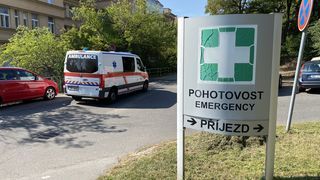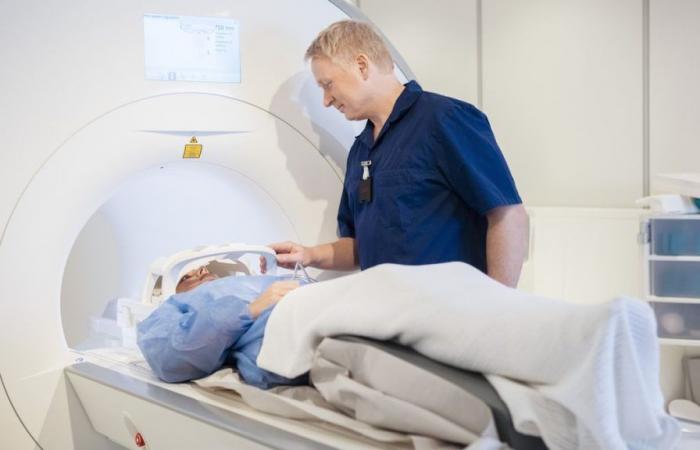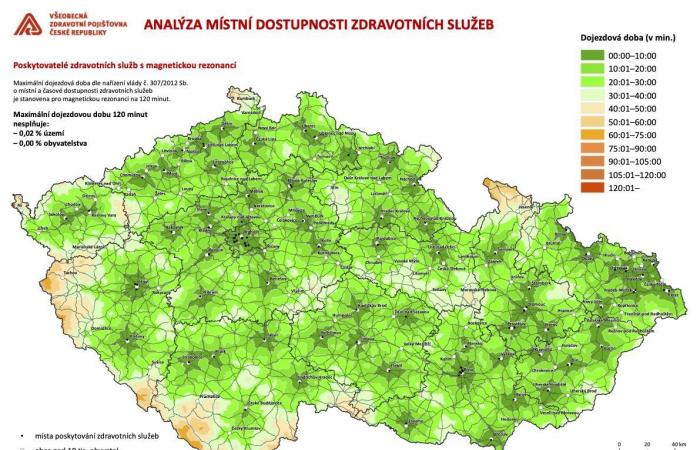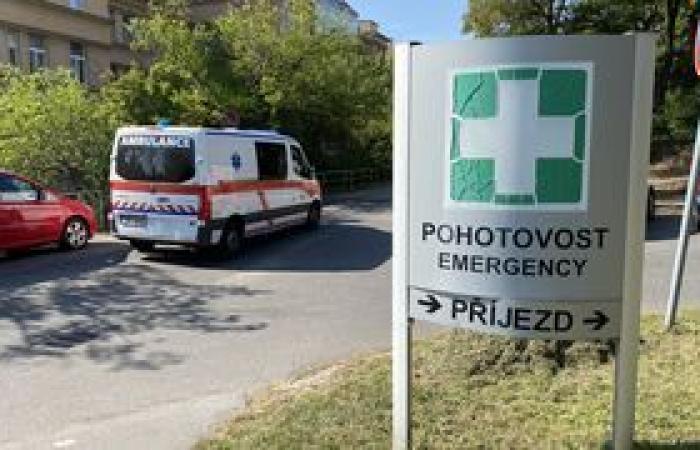Sixty-two-year-old Ondřej (The editors changed the name at the request) heard a serious suspicion from his urologist the year before last, shortly before the Christmas holidays. It could be prostate cancer. Therefore, he had to undergo a magnetic resonance examination. But here comes the catch, he didn’t get the deadline until the end of April the following year.
“Try to put yourself in my shoes. It is suspected that I have prostate cancer. The doctor calls for an MRI. Hangs up. And he says in four months. That would hit a person with a slag,” Ondřej describes his feelings about what was originally a routine inspection.
In the case of magnetic resonance imaging, the emergency group the patient falls into is crucial. That is, if it is an urgent, acute or planned performance. In the case of the first two categories, the matter is dealt with immediately or within a few days.
“So if the patient had ‘Statim’ listed on the MRI requisition (immediately, editor’s note), Of course, four months is a long time. However, if the attending physician issued him a regular request form for a planned examination, the waiting period is a maximum of five weeks according to the government’s order,” explains Ministry of Health spokesman Ondřej Jakob.
So four months is just too much. However, the provision of examination does not go to the ministry or a specific hospital, but to the health insurance company. So the insured should contact her if he is waiting so long.
“In the event that a VZP client is offered a disproportionately long order period by the provider, he can contact the VZP client workplace, where colleagues will try to arrange a closer appointment with another provider with shorter waiting times,” explains the spokeswoman of the General Health Insurance, Viktorie Plívová.
Ondřej admits that he did not contact his insurance company, which is VZP. He didn’t know about it, nor did his doctor advise him about it. But after four months and one biopsy, he actually heard a serious diagnosis – cancer. At the beginning of last September, his prostate was removed.
“I received several solutions. I nodded at this,” adds Ondřej.
The Czech Republic is lagging behind
But how are we doing with the availability of magnetic resonance imaging in the Czech Republic? The latest OECD data from 2020 show that below average. With a value of 1.1 per 100,000 inhabitants, we are better off than our neighbors Poland, Slovakia and Hungary. Apart from them, we pushed only Serbia under us within Europe.
Austria is already running away from us significantly. In addition to him, we are also looking at the backs of the post-Soviet republics in the Baltics. Lithuania, Latvia and Estonia have around 1.5 devices per 100,000 inhabitants. But if we look at the latest figures in the Czech Republic, the situation is improving.
“In general, the Ministry of Health does not often come across cases where magnetic resonance is not provided to the insured within the specified period. This is also related to the relatively robust network of these facilities in the Czech Republic,” adds Jakob, a spokesman for the Ministry of Health.
For example, VZP, which has the most clients, has contracted 134 magnetic resonance imaging. So, just for illustration, this would currently mean 1.23 devices per 100,000 inhabitants. The time limit for this examination is therefore set at five weeks according to the government order.
“According to current data from health service providers, more than half of the providers in the Czech Republic meet the deadline. The best situation is in the Central Bohemia, Pilsen, Liberec and Olomouc regions, where 80% or more of the health service providers meet the given time availability,” explains VZP spokesperson Plívová.
Photo: VZP, Seznam Zpravy
Local availability of magnetic resonance imaging for VZP insured persons.
Since Ondřej from the beginning of the article is from the Moravian-Silesian region, Seznam Zprávy asked about the average waiting time for this examination of providers there. In addition to them, there are also two hospitals from the Karlovy Vary region, where availability is the worst according to data from the Institute of Health Information. And on top of that in the South Bohemian Region, where accessibility is also below average for the number of inhabitants.
Where are you waiting?
It turns out that availability in the Czech Republic varies significantly not only across individual regions, but also between healthcare facilities. In some hospitals, the wait is two months, in others, as long as half a year.
At the Ostrava University Hospital, the average waiting time for subacute, control and planned examinations is 22 weeks.
“However, the average appointment time for an examination differs for individual diagnoses. For example, in cases of suspected prostate cancer or an enlarged prostate, in 2023 and Q1 2024, the average time between issuing a request form and performing an MRI was five weeks. Appointment times for acute examinations tend to be shorter,” explains hospital spokesperson Petra Petlachová.
The Silesian Hospital in Opava has a waiting period of seven weeks for non-acute patients, the waiting period at the Karvin Mining Hospital is approximately 11 weeks, and Havířov will perform the examination within two months. In Krnov, the usual waiting time is 1.5 months, but due to the shutdown of the device, there were also more patients from Opava, so the appointment times were extended to two months or more.

In the South Bohemian region, the waiting time is around 10 weeks
In Sokolov, waiting times range from two to six months, depending on the patient’s condition. The second hospital with magnetic resonance in Karlovy Vary currently has an order period of 10 weeks.
“The time is gradually lengthening because the indications for magnetic resonance examination are increasing,” explains Jiří Hofmann, head of the radiodiagnostic department of the Karlovy Vary Hospital.
“Shortening is only possible by increasing working hours. Already six years ago, we introduced afternoon shifts on weekdays, this year we also started investigating some Saturdays. We have whole weekends planned, the obstacle is currently the lack of radiology assistants,” adds Hofmann.
Other hospitals also agree on this. Not that there is an ideal amount of devices, but there is a lack of experts above all. For example, the hospital in Tábor wants to rely on artificial intelligence. This should speed up diagnostics for the device they are about to purchase.








